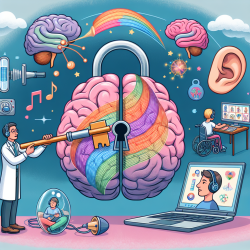As educators and mental health professionals, we are constantly seeking effective strategies to support our students' mental health. The recent study, "The efficacy of the 'Talk-to-Me' suicide prevention and mental health education program for tertiary students: a crossover randomised control trial," offers valuable insights into how we can improve our practices.
The "Talk-to-Me" program, delivered as a Massive Open Online Course (MOOC), was designed to equip tertiary students with the skills to identify and respond to suicidal ideation and mental health crises. This study involved 129 students from two Western Australian universities, assessing their knowledge and response capabilities over a 24-week period.
Here are some key takeaways from the research that can help you enhance your skills and encourage further exploration:
- Increased Self-Efficacy: The study found that students who participated in the "Talk-to-Me" program reported significant improvements in their general self-efficacy. This suggests that such programs can empower students to feel more confident in their ability to manage and support mental health issues.
- Sustained Knowledge: Participants in the program showed sustained knowledge in responding to suicidal ideation over 24 weeks. This highlights the importance of continuous education and training in maintaining mental health awareness and skills.
- Accessible and Engaging Content: The online format of the "Talk-to-Me" program made it accessible to students with busy schedules. The modules were engaging and easy to understand, which contributed to high levels of satisfaction among participants.
- Practical Application: The program included practical scenarios and interventions, which helped students apply their knowledge in real-life situations. This hands-on approach is crucial in preparing students to effectively support their peers.
- Mental Fitness and Resilience: Topics such as mental fitness and resilience were particularly well-received. These areas are essential for students to maintain their own mental health while supporting others.
To integrate these findings into your practice, consider the following steps:
- Implement Online Training Programs: Utilize online platforms to deliver mental health education and suicide prevention training. This approach can overcome barriers such as time constraints and accessibility.
- Focus on Practical Skills: Incorporate practical scenarios and role-playing exercises into your training programs to enhance students' ability to apply their knowledge.
- Promote Continuous Learning: Encourage ongoing education and refreshers to ensure that students retain and build upon their skills over time.
- Emphasize Self-Efficacy: Design programs that boost students' confidence in their ability to manage mental health crises, which can lead to more proactive and effective interventions.
For a deeper dive into the research and its outcomes, I highly recommend reading the original research paper. You can access it here.










